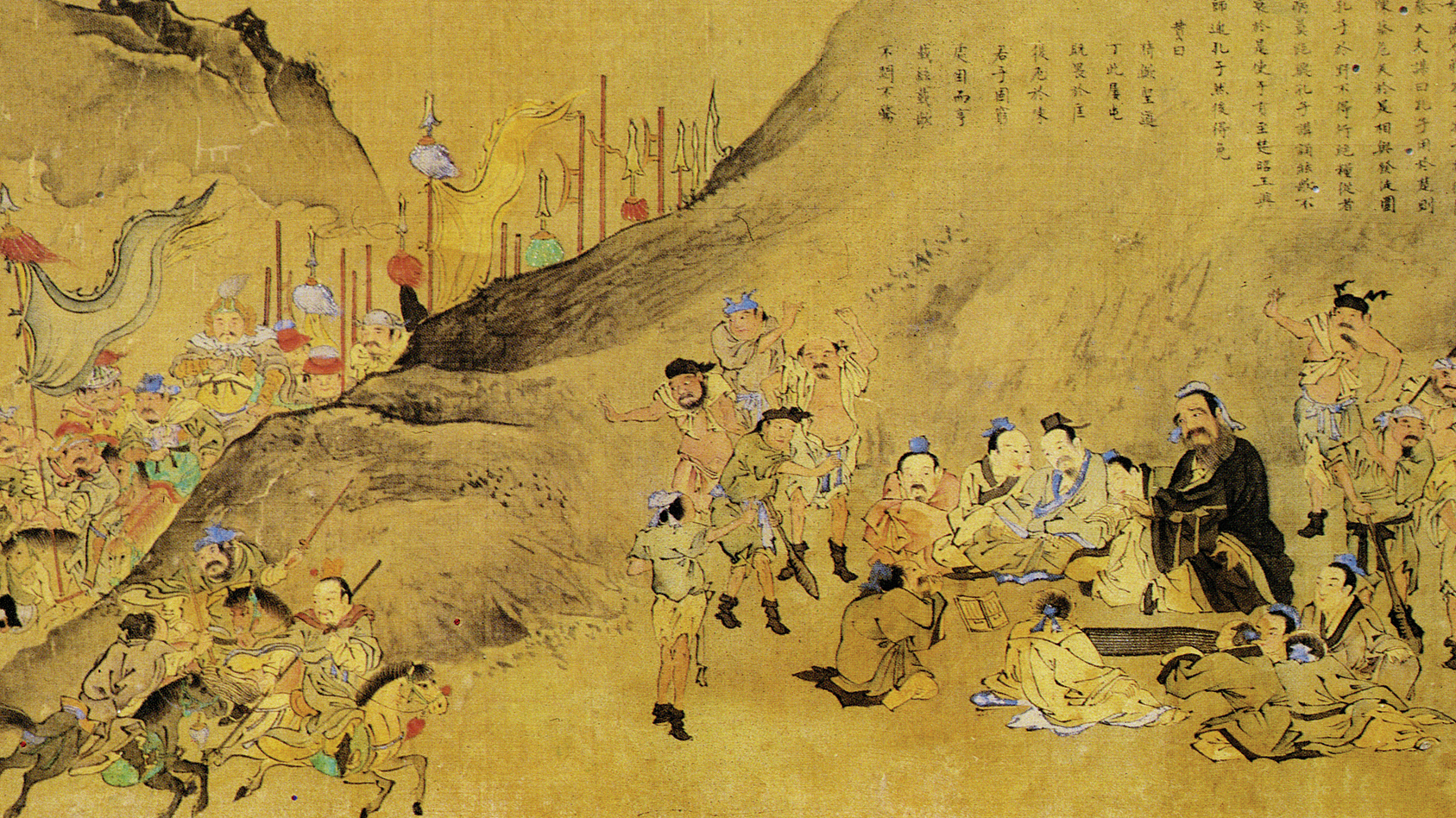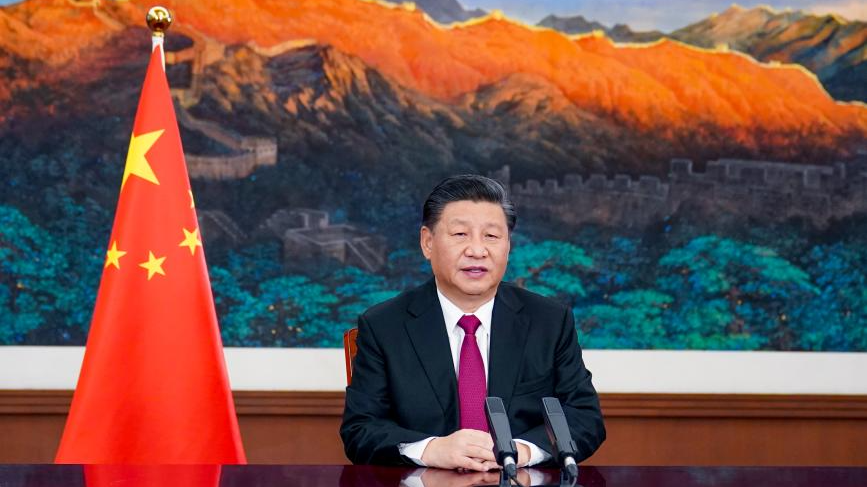
A Chinese painting shows the conversation between Confucius and his disciples. /VCG
A Chinese painting shows the conversation between Confucius and his disciples. /VCG
Editor's note: Andy Mok is a research fellow at the Center for China and Globalization. The article reflects the author's opinions, and not necessarily the views of CGTN.
One of the most important distinctions that is drawn in traditional Confucian thought is between a "junzi" and a "xiaoren." One who through rigorous and sustained self-cultivation becomes a moral exemplar can be called a "junzi." While the term "junzi" is sometimes translated as "superior person," it does not refer to a ruler over inferior subjects but rather an upright person who leads by character and conduct.
In contrast, a "xiaoren" is someone who cannot transcend personal concerns and prejudices and acts only for personal gain. And so it is only the "junzi" who can, through virtuous influence and leadership by example, bring about a prosperous and harmonious society.
In President Xi Jinping's speech at this year's Davos Forum, we can see this distinction clearly highlighted. In his call to abandon ideological prejudice, he explains, "Difference in itself is no cause for alarm and what does ring the alarm is arrogance, prejudice and hatred; it is the attempt to impose hierarchy on human civilization or to force one's own history, culture and social system upon others. The right choice is for countries to pursue peaceful coexistence based on mutual respect and on expanding common ground while shelving differences, and to promote exchanges and mutual learning."
When one country thinks of itself as an exceptional nation and a shining and elevated example that others must look up to and emulate, this is exactly the kind of prejudice and arrogance that Confucius warned against and called those engaging in this type of thinking "xiaoren."

Chinese President Xi Jinping attends the World Economic Forum (WEF) Virtual Event of the Davos Agenda and delivers a special speech in Beijing, capital of China, January 25, 2021. /Xinhua
Chinese President Xi Jinping attends the World Economic Forum (WEF) Virtual Event of the Davos Agenda and delivers a special speech in Beijing, capital of China, January 25, 2021. /Xinhua
Should a country like this, through luck akin to winning the lottery, gain global influence, it can cause much misfortune to the world. But this type of thinking is also ultimately self-destructive as arrogance and prejudice, which is nothing more than ignorance and a stubborn unwillingness to see and acknowledge reality, can only lead to its own downfall.
In contrast, President Xi has called for China to take the high road. In his speech, he notes, "the right approach is to act on the vision of a community with a shared future for mankind. We should uphold the common values of humanity, i.e. peace, development, equity, justice, democracy and freedom, rise above ideological prejudice, make the mechanisms, principles and policies of our cooperation as open and inclusive as possible, and jointly safeguard world peace and stability."
He further adds, "we should reject the outdated Cold War and zero-sum game mentality, adhere to mutual respect and accommodation, and enhance political trust through strategic communication. It is important that we stick to the cooperation concept based on mutual benefit, say no to narrow-minded, selfish beggar-thy-neighbor policies, and stop unilateral practice of keeping advantages in development all to oneself." Seeing the world in zero-sum terms is the hallmark of a "xiaoren," as is the overweening desire to impose one's will upon others.
The world in 2021 faces daunting challenges including COVID-19 and the economic repercussions of the pandemic. But these challenges may only be the beginning as forces like climate change may unleash crises as widespread and crippling. President Xi's call for the world to see diversity in values, political choices and experiences as a source of strength and opportunity rather than a threat shows the wisdom of a "junzi" who can lead by moral example. Whether those still trapped in a "xiaoren" way of thinking can transcend this narrow and petty worldview will be an important question for how well the world can face today's and tomorrow's challenges.
(If you want to contribute and have specific expertise, please contact us at opinions@cgtn.com.)

